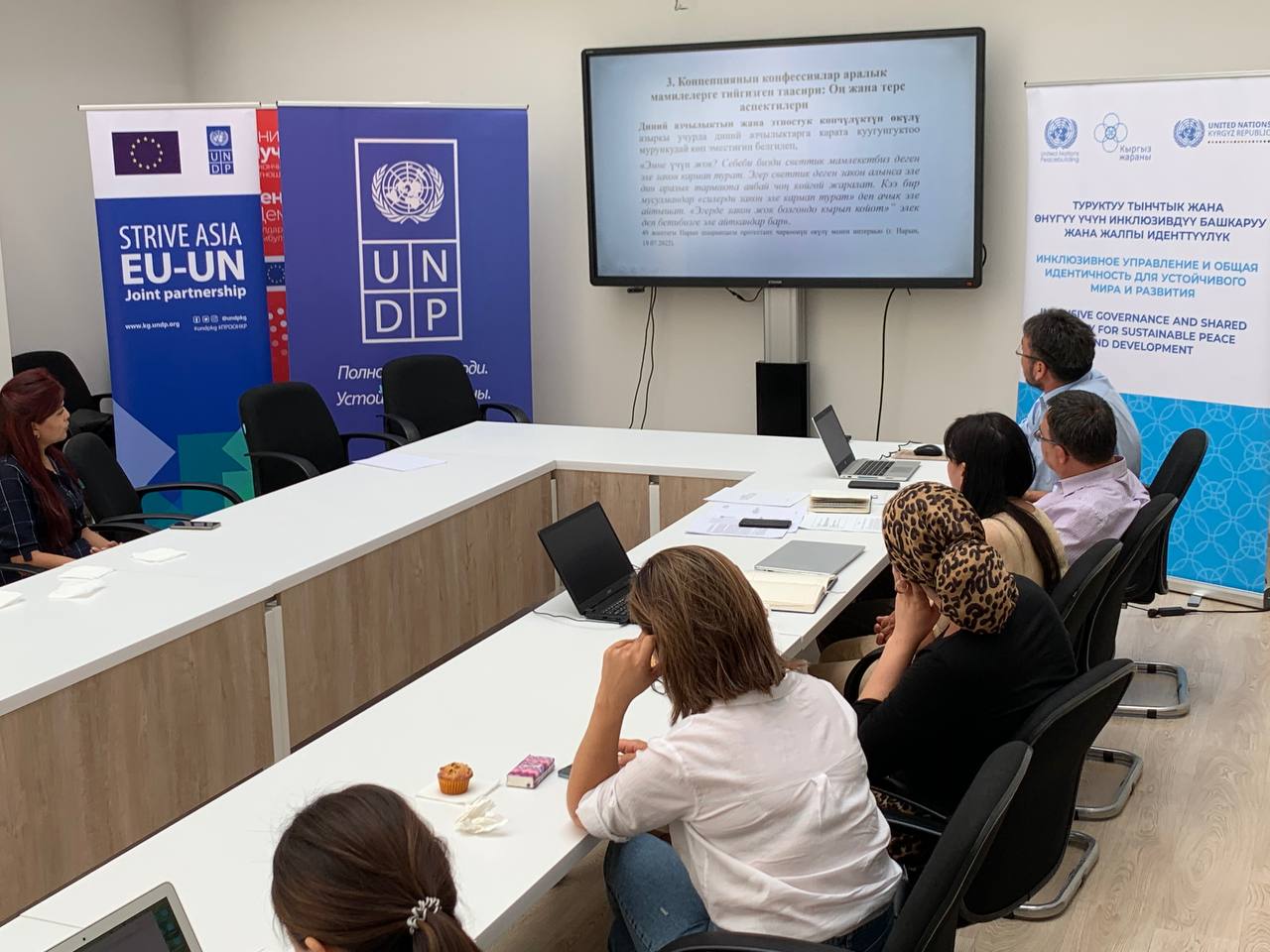Discussion on the results of the sociological research "Impact of the Kyrgyz Jarany Concept on Interethnic and Religious Relations"
September 8, 2022

At a roundtable discussion in Bishkek, participants discussed the preliminary results of a sociological study on the impact of the "Kyrgyz Jarany" concept on interethnic and religious relations, aimed at identifying sensitive issues in the implementation of the "Kyrgyz Jarany" concept for the Development of a Common Civil Identity. Representatives of the State Commission on Religious Affairs of the Kyrgyz Republic, Ministry of Culture, Information, Sports and Youth Policy of the Kyrgyz Republic, non-governmental organizations, UN agencies in Kyrgyzstan, and academics in the field of religious studies and sociology took part in the discussion.
The study was conducted by the Centre for Central Asian Studies of Kyrgyz-Turkish Manas University under the coordination of the Centre's Deputy Director, Zakir Chotayev. The work was conducted in the format of desk and field research in 10 pilot locations to identify perceptions and reactions of citizens to the implementation of the Concept "Kyrgyz Jarany", its impact on inter-ethnic and inter-confessional relations, analysis of conflict sensitivity and development of appropriate proposals for the implementation of the Action Plan. Zakir Chotaev noted: "The work includes desk research on theoretical aspects, analysis of practices of foreign countries and Kyrgyzstan, as well as conducting a sociological survey in the form of focus groups and interviews in 10 pilot locations with representatives of local communities, ethnic and religious groups of different age categories, including youth and women.
The 10 selected pilot zones in Kyrgyzstan are:
1. Bishkek City
2. Tokmok Town
3. Kara-Balta Town
4. Nookat Town
5. Kadamjay Town
6. Uzgen Town
7. Jalalabad City
8. Osh City
9. Balykchy Town
10. Naryn City
Strengthening community resilience is implemented under the UNDP project "Building Resilience to Violent Extremism in Asia (STRIVE Asia)” , funded by the European Union under the EU-UN Joint Partnership.
The project on prevention of violent extremism has been under implementation since 2020.
The overall objective of STRIVE Asia is to contribute to the prevention of violent extremism (CVE) in Central Asia, South-East Asia and South Asia through a multi-stakeholder collaborative approach including governments, security actors, local authorities and communities, civil society, academia, media and the private sector.
The implementation of the Kyrgyz Jarana Concept is supported by the project "Inclusive Governance and Civic Identity for Sustainable Peace and Development" with the technical support of UN agencies in the Kyrgyz Republic UNDP, UNICEF and OHCHR, and funding from the UN Peacebuilding Fund.
Photo from the roundtable: https://flic.kr/s/aHBqjA4mMA
Media contacts: Nurzhan Alymkanova, UNDP Communications Officer nurzhan.alymkanova@undp.org

 Locations
Locations


